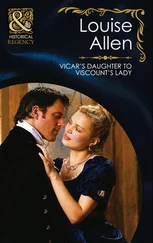Louis Barbé - Viscount Dundee
Здесь есть возможность читать онлайн «Louis Barbé - Viscount Dundee» — ознакомительный отрывок электронной книги совершенно бесплатно, а после прочтения отрывка купить полную версию. В некоторых случаях можно слушать аудио, скачать через торрент в формате fb2 и присутствует краткое содержание. Жанр: foreign_antique, foreign_prose, на английском языке. Описание произведения, (предисловие) а так же отзывы посетителей доступны на портале библиотеки ЛибКат.
- Название:Viscount Dundee
- Автор:
- Жанр:
- Год:неизвестен
- ISBN:нет данных
- Рейтинг книги:3 / 5. Голосов: 1
-
Избранное:Добавить в избранное
- Отзывы:
-
Ваша оценка:
- 60
- 1
- 2
- 3
- 4
- 5
Viscount Dundee: краткое содержание, описание и аннотация
Предлагаем к чтению аннотацию, описание, краткое содержание или предисловие (зависит от того, что написал сам автор книги «Viscount Dundee»). Если вы не нашли необходимую информацию о книге — напишите в комментариях, мы постараемся отыскать её.
Viscount Dundee — читать онлайн ознакомительный отрывок
Ниже представлен текст книги, разбитый по страницам. Система сохранения места последней прочитанной страницы, позволяет с удобством читать онлайн бесплатно книгу «Viscount Dundee», без необходимости каждый раз заново искать на чём Вы остановились. Поставьте закладку, и сможете в любой момент перейти на страницу, на которой закончили чтение.
Интервал:
Закладка:
It was not the intention of those who had instigated this coercive and penal legislation that it should remain a dead letter. As a means of enforcing obedience to it and of levying the fines imposed upon those who would not yield dutiful submission, troops were sent into the discontented districts. The south-western counties, in which the Covenanters were most numerous and most determined, were entrusted to Sir James Turner. His orders were to punish recalcitrant families by quartering his men on them, and, if they remained obstinate, to distrain their goods and gear, and to sell them in discharge of the fines incurred. It was the carrying out of these instructions that first led to armed resistance on the part of the Covenanters.
The immediate cause of the rising, however, is conflictingly stated by different writers. Kirkton’s version of the occurrence, which has been reproduced almost literally by Wodrow, is to the effect that, on the 13th of November 1666, four of the men who had abandoned their homes on the appearance of the military, coming, in the course of their wanderings, towards the old clachan of Dalry, in Galloway, to seek refreshment after long fasting, providentially met, upon the highway, three or four soldiers driving before them a company of people, for the purpose of compelling them to thresh the corn of a poor old neighbour of theirs, who had also fled from his house, and from whom the church fines, as they were called, were to be exacted in this way. ‘This,’ says Kirkton, ‘troubled the poor countrymen very much, yet they passed it in silence, till, coming to the house where they expected refreshment, they were informed the soldiers had seized the poor old man, and were about to bind him and set him bare upon a hot iron gird-iron, there to torment him in his own house. Upon this they ran to relieve the poor man, and coming to his house, desired the soldiers to let the poor man go, which the soldiers refused, and so they fell to words; whereupon two of the soldiers rushing out of the chamber with drawn swords, and making at the countrymen, had almost killed two of them behind their backs, and unawares; the countrymen having weapons, one of them discharged his pistol, and hurt one of the soldiers with the piece of a tobacco pipe with which he had loaded his pistol instead of ball. This made the soldiers deliver their arms and prisoner.’
The accuracy of the account given by Kirkton has been denied. Burnet distinctly asserts that ‘this was a story made only to beget compassion’; that after the insurrection was quashed, the Privy Council sent commissioners to examine into the violences that had been committed, particularly in the parish where this was alleged to have been done; that he himself read the report they made to the Council, and all the depositions taken by them from the people of the district, but that no such violence on the part of the military was mentioned in any one of them. The wounded soldier himself, one George Deanes, a corporal in Sir Alexander Thomson’s company, from whose body ten pieces of tobacco pipe were subsequently extracted by the surgeon, told Sir James Turner that he was shot because he would not take the covenanting oath.
Whether premeditated and concerted, or merely ‘an occasional tumult upon a sudden fray,’ this attack on the military was the signal for a gathering of the discontented peasantry of the district. On the morrow, the four countrymen, one of whom was M’Lelland of Boscob, being joined by six or seven others, fell upon a second party of soldiers. One of these, having offered resistance was killed; his comrades, about a dozen in number, according to Kirkton, quietly gave up their arms. Within two days the insurgents had recruited about fourscore horse and two hundred foot. Proceeding to Dumfries, where Turner then lay with only a few of his soldiers, the greater number of them being scattered about the country in small parties, for the purpose of levying the fines, they seized him, together with the papers and the money in his possession, and carried him off as a prisoner. After this, ‘in their abundant loyalty,’ as Wodrow characterises it, they went to the Cross and publicly drank to the health of the King and the prosperity of his Government.
In daily increasing numbers the insurgents marched towards Edinburgh. At Lanark, where all the contingents they could expect from the south and west had already joined them, and where ‘this rolling snow-ball was at the biggest,’ they were estimated at some three thousand. Here they renewed the Solemn League and Covenant. In spite of repeated warnings from men who, whilst fully sympathising with them, yet understood the hopeless nature of the enterprise in which they were engaged, the leaders determined to push on towards the capital. But the enthusiasm of many amongst their followers was beginning to wane; and by the time Colinton was reached, the ill-armed and undisciplined crowd had dwindled down again to a bare thousand. Then at length, even those who had previously rejected the well-meant advice of their more cautious friends, and had declared that, having been called by the Lord to this undertaking, they would not retire till he who bade them come should likewise command them to go, became conscious of their desperate plight, and consented to a retreat towards the west. Turning the eastern extremity of the Pentland hills, they directed their march towards Biggar.
But it was too late. Dalziel, the governor of Edinburgh, who, at the head of a hastily mustered body of regulars, had been sent out to intercept them, came upon them at Rullion Green, on the evening of the 28th of November. A sharp engagement followed. Twice in the course of it success seemed to favour the insurgents; but in the end the military training and the superior weapons of their opponents prevailed, and the Covenanters were scattered in headlong flight. Of the soldiers, only five fell. On the other side there were about forty killed and a hundred and thirty taken. These prisoners were next day marched into Edinburgh. They might all have saved their lives if they had consented to renounce the Covenant; but their refusal to do so was severely punished. According to Burnet, who certainly does not exaggerate the number who suffered the death penalty, ten were hanged upon one gibbet in Edinburgh, and thirty-five more were sent to be hanged up before their own doors. Many were transported across the seas. The torture of the boot and of the thumbkins – the latter said to have been introduced by Dalziel, who had learnt their use in Russia, where he served for a time – was freely applied in the hope of wringing from the prisoners the admission that the rising was part of a concerted plot for the subversion of the existing government. They all strenuously denied it.
That shortly prior to this, a conspiracy had been formed for this object is a well established fact. A document discovered by Dr M’Crie in the Dutch archives and published by him in his edition of the Memoirs of Veitch, shows that a plan was formed, in July 1666, for seizing on the principal forts in the kingdom, and that ‘the persons embarked in this scheme had carried on a correspondence with the Government of the United Provinces then at war with Great Britain, and received promises of assistance from that quarter.’ Another document referred to by the same writer asserts that the castles of Edinburgh, Stirling, and Dumbarton were amongst those to be taken possession of. Whether this Dutch plot and the Galloway insurrection were connected with each other, is a point with regard to which historians have maintained conflicting opinions in accordance with their own sympathies. The strongest evidence that Napier is able to adduce, on the one side, is the fact that a Mr Wallace is mentioned as one of those in correspondence with Holland, and that Colonel James Wallace was the leader of the insurgents whom Dalziel routed at Rullion Green. But, on the other hand, it is pointed out by Dr M’Crie that, as the other names are obviously fictitious, this coincidence affords no ground for supposing that the Colonel was the person referred to.
Читать дальшеИнтервал:
Закладка:
Похожие книги на «Viscount Dundee»
Представляем Вашему вниманию похожие книги на «Viscount Dundee» списком для выбора. Мы отобрали схожую по названию и смыслу литературу в надежде предоставить читателям больше вариантов отыскать новые, интересные, ещё непрочитанные произведения.
Обсуждение, отзывы о книге «Viscount Dundee» и просто собственные мнения читателей. Оставьте ваши комментарии, напишите, что Вы думаете о произведении, его смысле или главных героях. Укажите что конкретно понравилось, а что нет, и почему Вы так считаете.












